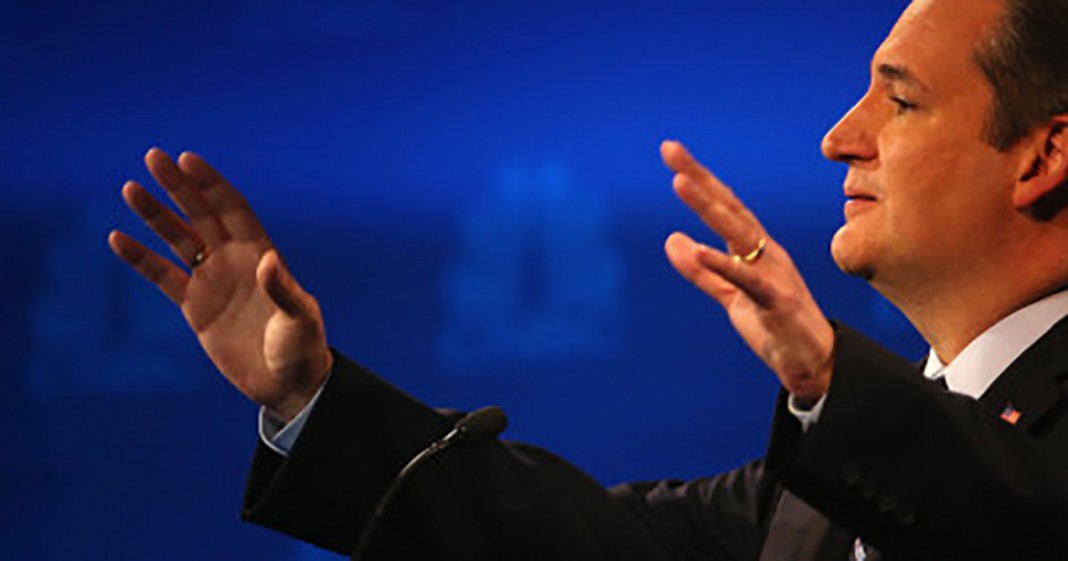Ted Cruz ran for his Senate seat four years ago on a “populist” platform, attacking bank bailouts and denouncing Wall Street’s power and influence over the legislative process in Washington D.C.. Nonetheless, this hasn’t stopped him from taking out substantial campaign loans from Goldman-Sachs and Citigroup, two of the biggest corporate “welfare queens” on Wall Street. Together, those loans totaled as much as $1 million – and Cruz failed to mention them to the Federal Election Commission (FEC) in his latest filing, as required by law.
Of course, there is nothing illegal about borrowing money in order to fund a political campaign. However, the law is clear about disclosure: voters have a right to know where such loans come from (even if loopholes allow outright “contributions” to be made in secret). The disclosure rule also prevents candidates from getting preferential treatment from such lenders, such as special low interest rates and favorable terms.
This news comes at an awkward moment for Cruz, who has taken away Trump’s lead in Iowa. While he claims that his failure to disclose the loans was a “technical and inadvertent filing error,” the fact is that doing business with two of the most hated financial institutions on Wall Street is potentially embarrassing to his “populist” campaign. It makes one wonder how “inadvertent” that omission was. And here’s another interesting bit of information: Mrs. Heidi Cruz is a managing director at Goldman-Sachs (she’s currently on leave).
Coincidence?
Campaign spokesperson Catherine Frazier told the media that Cruz put up is own assets as collateral for the Goldman-Sachs loan and received no special terms. According to Frazier, Cruz has since paid off the loan. Cruz told the media that his loans “have been disclosed over and over and over again on multiple filings,” assuring his supporters that “If…they were not filed exactly as the FEC requires, then we’ll amend the filings.” He insists that “all of the information has been public and transparent for many years.”
This could all very well be true, although a bit of skepticism is understandable. After all, a candidate who takes money from the very institutions he claims to stand against – even in the form of loans – can look hypocritical in the eyes of voters, especially those who are outraged by the power and influence of Wall Street. One couldn’t blame Cruz too much for wanting to keep that bit of information under wraps.
At the very least, the Cruz campaign will wind up having to pay out fines for the alleged “oversight.” At worst, it could prove to be a serious setback for him in his quest for the GOP Presidential nomination.




![Senator Schumer: “Single Payer [Health Care] is On The Table”](https://sandbox.trofire.com/wp-content/uploads/2017/07/Universal-Healthcare-218x150.jpg)